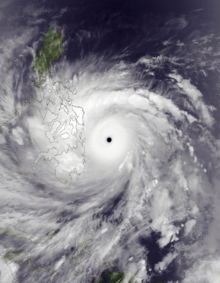
By Philippine News Agency
LEGAZPI CITY — The onset of the rainy season and the typhoons that come with it have understandably elicited apprehension among many Filipinos who fear another supertyphoon Yolanda (Haiyan) may visit them.
No less that Albay Gov. Joey Salceda, co-chairman of the United Nations Green Climate Fund (GCF) for Southeast Asia and the developing countries, has warned that “Yolanda” may no longer be a once-in-a-lifetime experience, but “could be the norm for the Philippines in the near future.”
Salceda, however, said poor nations which are particularly exposed and vulnerable to debilitating weather extremes, could wield the Green Climate Fund as a weapon against the worsening climate impacts.
Salceda said the “Summary for Policymakers,” which was recently approved by the Inter-governmental Panel on Climate Change (IPCC) Working Group II (on Impacts, Adaptation and Vulnerably), paints a very grim picture for developing countries like the Philippines which are particularly vulnerable to extreme weather events.
The Summary for Policymakers, drafted March 25 to 29 during the 10th session of Working Group II (WGII-10) in Yokohama, Japan, underlines the need for climate change adaptation, and the need to “act NOW” on the problem.
“It is this urgency for action that I am pushing for, as co-chair of the GCF Board,” Salceda said in a recent interview. The IPCC WG II assesses the vulnerability of socio-economic and natural systems to climate change, the negative and positive consequences of climate change, adaptation options, as well as the inter-relationship among vulnerability, adaptation and sustainable development.
Salceda presided over the GCF meeting in Bali, Indonesia in February, where the need for immediate operationalization of the Fund was discussed, and how to expedite collection of the amounts pledged by developed countries deemed to have contributed much to the exacerbation of climate change. The Bali meeting also explored options to assure balanced allocation for climate change mitigation and adaptation for developing countries.
“We are working for the full and expeditious operationalization of the GCF this year, with an initial resource mobilization to reach a “very significant scale” as decided by the UN Framework Convention on Climate Change (UNFCCC),” he assured, adding that the GCF Board has in fact sought an informal dialogue soon in Washington D.C. “to help us move forward”.
The IPCC WGII report, he said, has also validated Albay’s disaster risk management and climate change adaptation which he hopes will be replicated throughout the whole country.
Based on the GCF Bali meeting report, Salceda said the recently concluded UN Climate Change Conference or COP19 in Warsaw took a decision to provide additional guidance to the GCF, stressing the need for its full operationalization immediately.
The Philippines, he added, coordinated and negotiated in behalf of the G77 for this decision and other financial decisions taken in Warsaw. (courtesy PNA)








